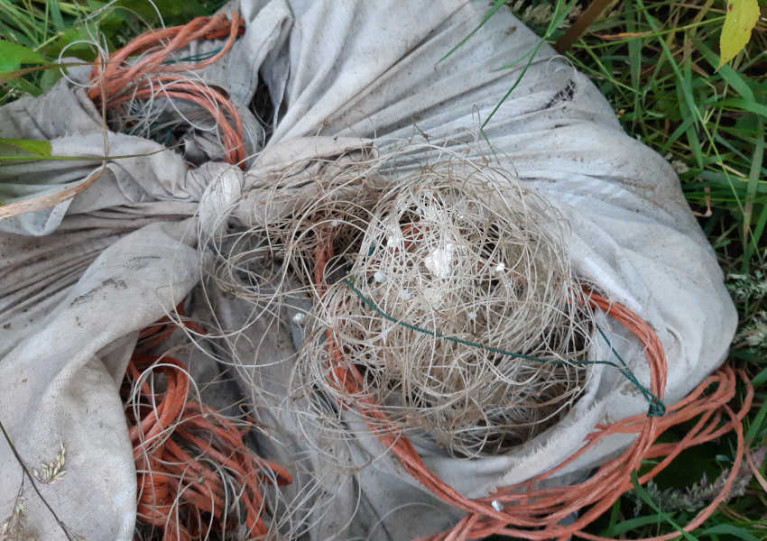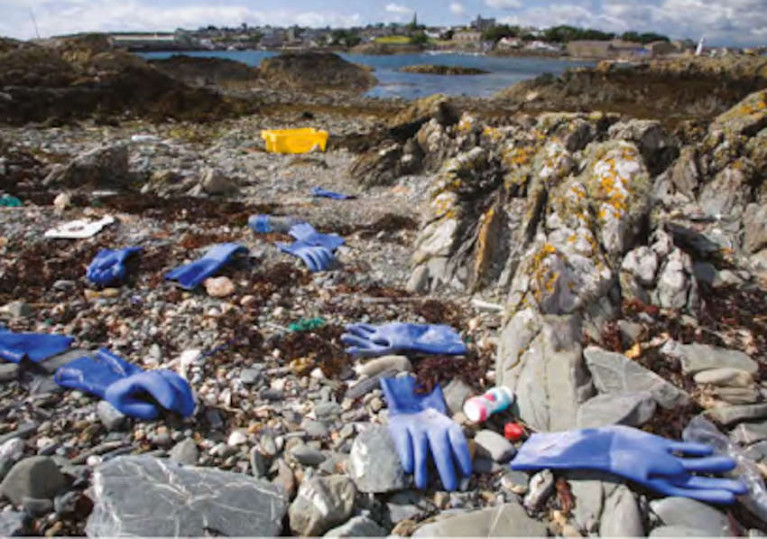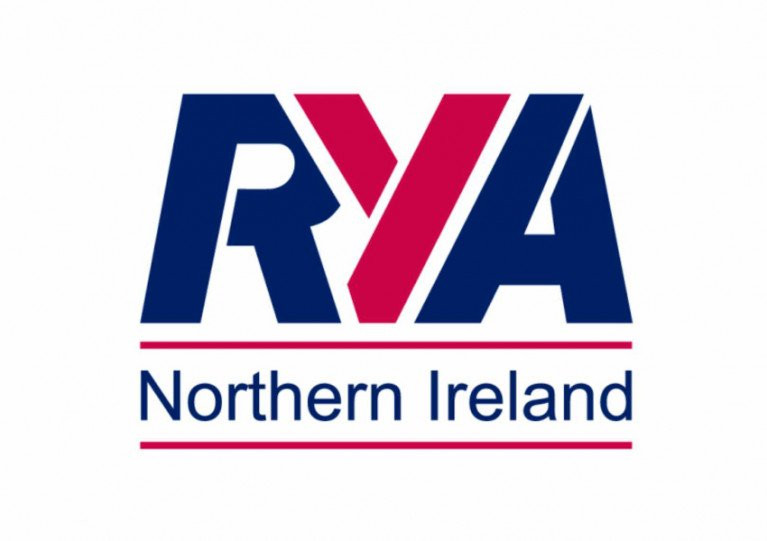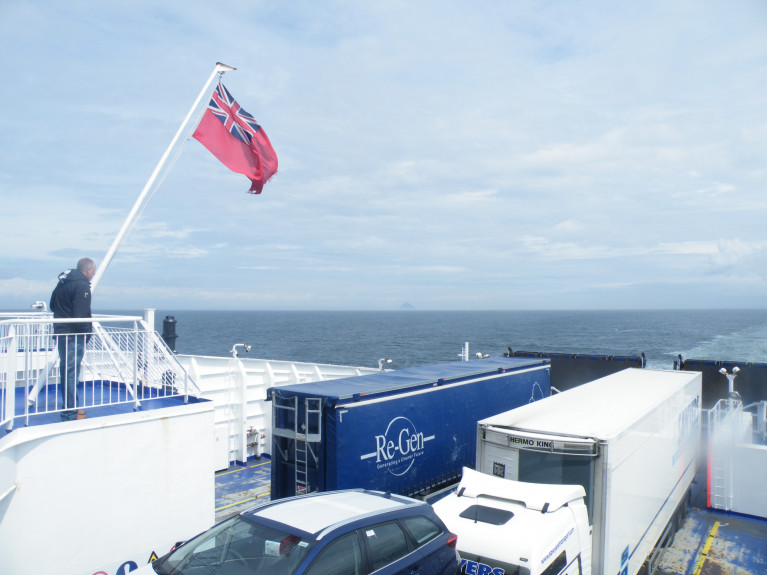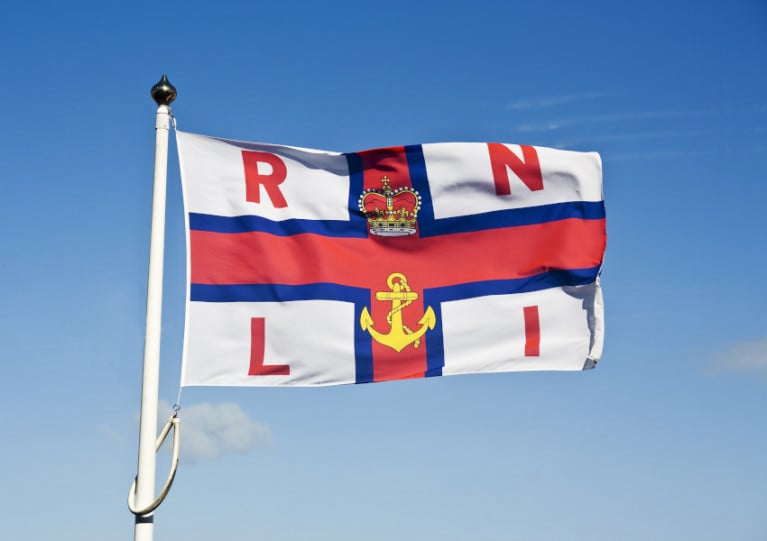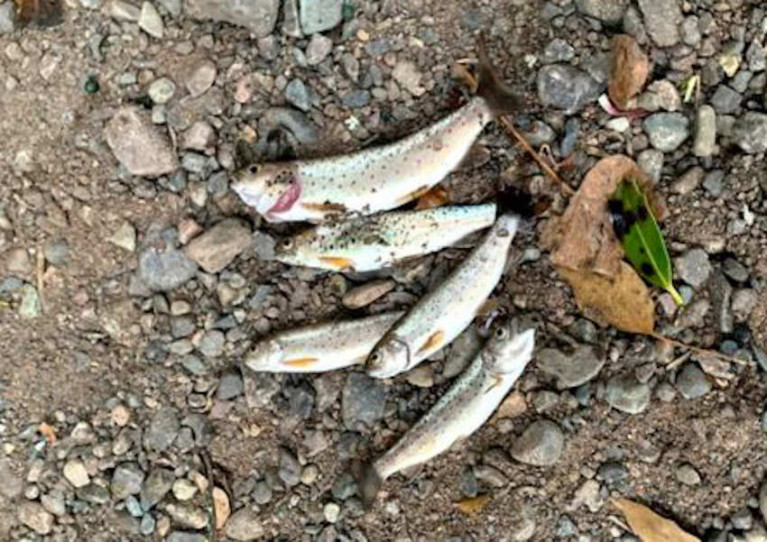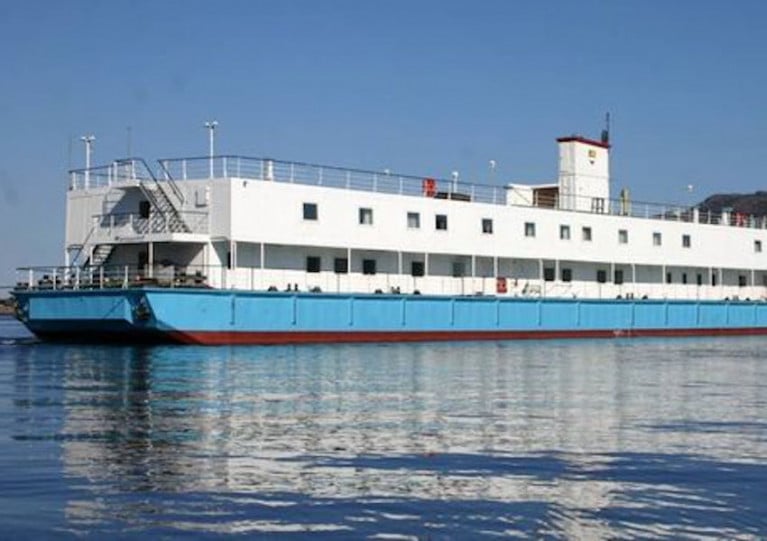Displaying items by tag: Northern Ireland
The RNLI is on the lookout for budding lifeguards to launch their lifesaving careers on some of the most popular beaches in Scotland, Northern Ireland and elsewhere in the UK.
Recruitment for this season’s lifeguard team has started nationally in preparation for providing local authorities and landowners with the service they request to keep the nation’s beachgoers safe this summer.
The charity’s lifeguards not only rescue those in difficulty in the water, they also provide vital beach first-aid and safety advice to ensure visitors can return home safely.
In 2022, RNLI lifeguards provided patrols and responded to more than 18,000 incidents, helping more than 24,000 people in need and saving 117 lives.
Last summer, lifeguards plucked stricken swimmers from powerful rip currents, saved children being blown offshore in inflatables, came to the aid of paddle-boarders and gave lifesaving CPR on beaches among the thousands of incidents they attended.
Successful applicants will receive world-class lifesaving training, enjoy good rates of pay, the possibility of flexible working patterns and develop valuable skills for a future career.
Lachlan Edwards, lead lifeguard supervisor for Scotland said: “To anyone thinking of becoming a lifeguard, just do it. It’s the best job, it’s so rewarding, and it keeps getting better – there’s so much opportunity for growth in the role.
“I love being outside on the beach all summer and sharing my knowledge with people. It often doesn’t feel like a job because I enjoy it so much, which is something a lot of lifeguards say.”
Lee Fisher, lifeguard experience manager said: “Beach lifeguarding is a great opportunity and a very rewarding role that changes lives — including your own — all whilst enjoying the beach as your office.
“Our lifeguards range from teenagers all the way up to lifesavers in their 70s, as long as you meet the fitness requirements and you are over 16 years old, there could be a role for you.
“The job also has great paths for progression — we have lifeguards who have been working for the RNLI for years, both on the beach and as part of our support teams, and the skills you gain can make an ideal first step towards many careers. It’s a great opportunity whether you want a rewarding summer job or to pursue a career in lifesaving.”
Find out more about becoming a lifeguard at rnli.org/BeALifeguard.
Stricter Standards Mean None of NI’s Rivers or Lakes Makes the Grade for Water Quality in 2021
None of Northern Ireland’s rivers, lakes or coastal waters has achieved a “good overall” status for water quality in a new report, as the Belfast Telegraph reports.
The Water Framework Directive Statistics Report from NI’s Department for Agriculture, Environment and Rural Affairs (DAERA) highlights a marked decline in water quality across the region, with no water bodies achieving good or above in 2021
This is compared to just three years ago, when 141 of Northern Ireland’s river water bodies classified as good or high. The 2018 rate for lakes was five out of 21, and for coastal waters 10 out of 25.
Stricter standards have prompted the lower ratings, the report explains, with DAERA now assessing water bodies for the presence of ubiquitous, persistent, bioaccumulative and toxic (uPBT) substances.
The Belfast Telegraph has more on the story HERE.
Northern Ireland Youth Sailors Competing at High Levels
It has been a busy August for several young Laser sailors from Northern Ireland clubs who have competed at a high level in the RYA Youth Nationals at Plymouth, the UK Laser Association Nationals at Weymouth and the World Laser ILCA 4/4.7 Championships in Dun Laoghaire.
In the RYA Youth Nationals at Plymouth, Tom Coulter from East Antrim Boat Club in the County Antrim `port of Larne placed 24th in the ILCA 6 fleet with Josh McGregor and Lucas Nixon (both Ballyholme in Belfast Lough) 35th and 39th respectively. Ellen Barbour of County Antrim YC at Whitehead, also on Belfast Lough, finished a creditable 8th of 23 in the Girls section.
In the UK, Laser Association Nationals in Weymouth Coulter was 23rd in ILCA 6, having made the Gold Fleet and in the Silver fleet Josh McGregor (BYC) came 9th, one ahead of Ellen Barbour. And Lucas Nixon, also from Ballyholme, was 31st.
After this flurry of events, Tom Coulter spoke for the Northern Ireland contingent; "Lots of learning this past couple of weeks, and lots to build upon as we go forward. We have had the best time over the last ten days, with all of us having highs and lows at some point. It's been a fantastic experience both on and off the water with the best people, and I've loved every minute".
 Tom Coulter and Ellen Barbour
Tom Coulter and Ellen Barbour
To round off that spate of activity, down the road in Dublin Bay were the Laser ILCA 4 /Laser 4.7 Worlds at Dun Laoghaire hosted by the Royal St George and the National YC. There, in the Silver fleet, Hannah Dadley-Young from Ballyholme finished 17th, Zoe Whitford from East Antrim at Larne came 29th in the 40-boat fleet and Daniel Corbett, also from Ballyholme, was 53rd in the Boys Silver fleet.
The next big gathering will be the RYA NI Youth Championships at Carrickfergus SC on Belfast Lough on 11th and 12th September. There will, where numbers permit, be racing for ILCA 4s, 5s and 7s, 420s, 29ers, Topper 5.3, Topper 4.2, Optimist and RS Feva. A regatta fleet is also part of the event where less experienced sailors can race under the guidance of a race coach.
Illegal Nets Removed From River Foyle Fishery
Loughs Agency fishery officers recovered illegal nets in two separate incidents on the River Foyle last weekend.
In the first of these, fishery officers seized a 150m-long net containing 28 salmon at an area known as Rosses Bay.
A sea trout, millet and flounder were also caught in the net, which was found in an important holding water for salmon on their journey to the tributary rivers upstream.
Protection of this area is vital to ensure salmon populations are sustainable, the Loughs Agency says.
In a separate incident, another illegal net was seized on the Foyle at Porthall in Co Donegal after reports from a member of the public about suspicious activity near the river.
The net showed signs of recent use, with fresh salmon scales visible. The net was seized and will be destroyed once a court order has been granted.
Loughs Agency encourages the public to report suspicious activity directly and promptly using the 24-hour Response Line at +44 (0) 2871 342100 or through the WaterWatch reporting tool on its website.
Discarded plastic is the predominant form of litter on Northern Ireland’s beaches, according to a new survey by a local environmental group.
As the Belfast Telegraph reports, the survey by Keep Northern Ireland Beautiful estimates that plastic — most of it single-use, such as bottles or food wrappers — accounts for nearly four-fifths of more than three million items of rubbish on NI beaches at any one time.
The figure is projected from on-site surveys in 2019 which recorded an average of more than 500 pieces of litter per 100 metres of beach.
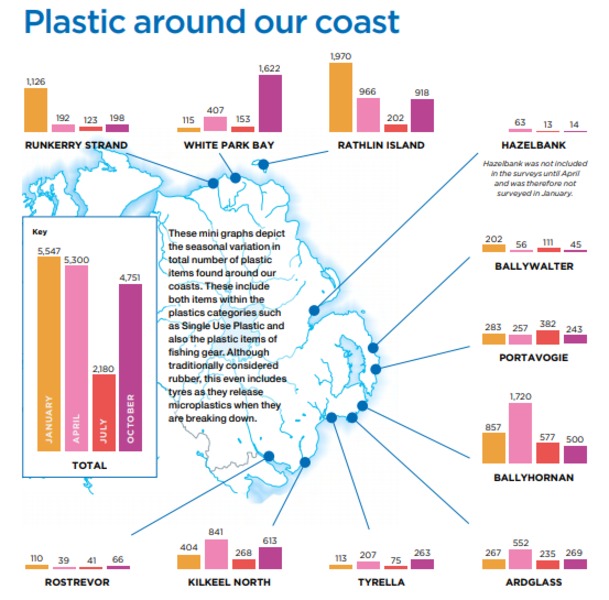
Commenting on the survey, NI Environment Minister Edwin Poots said: “The figures reveal the stark reality of litter on our beaches, with over 22,000 pieces of litter collected across 11 beaches, with 78% of this made from single-use plastic.”
The Belfast Telegraph has more on the story HERE.
RYA Northern Ireland has released guidance for boaters after a Sport Northern Ireland update confirmed that Outdoor Activity has moved into Step 2.
However, this is limited to outdoors only and indoor activity/advice remains as it was in Step 1 until further announcements. This has allowed some additional considerations for boating activity.
The Sport Northern Ireland update highlighted that:
- Groups of up to 10 are now permitted to take part in socially distanced outdoor training
- No relaxation of restrictions is yet in place for indoor activity and as a result no indoor sports activity is permitted at this time.
- Resumption of outdoor sporting activity at Step 2 is entirely conditional on robust protocols being in place, communicated, fully understood and complied with by all participants. We would therefore urge a cautious approach.
Under the Northern Ireland Executive's Pathway to Recovery, the following is therefore permitted:
Outdoor activities involving small groups of less than 10 people during which it may be difficult to maintain social distancing but where contacts are brief (less than10 minutes).
RYA Northern Ireland has updated and issued its Guidance for Step 2 and considerations of activity that could now take place.
The Governing Body continues to urge boaters to take a conservative approach to activities and to follow all public health advice in order to best help eliminate COVID 19. Guidance for access to indoors remains in Step 1 until subsequent announcements.
UK Ports Association Welcomes New Border Pragmatism
In the UK the British Ports Association has welcomed news that government will postpone its plans to introduce full border checks on traffic arriving from the EU for six months from January 2021.
This will be done for imports into the UK in three phases until July 2021.
Richard Ballantyne, the Chief Executive of the British Ports Association, who represents all the main ferry port gateways including Dover, Holyhead, Immingham and Portsmouth, said:
“This is welcome news. Across the board the freight industry has been telling government that it will not be ready. The risk of doing nothing could have led to issues for much of our trade with Europe, including severe congestion at ports. Delays and additional costs for freight operators get passed on and ultimately this sensible and pragmatic decision will mean British manufacturers and consumers are not faced with the increased expenditure, at least until a more formal border operating model is agreed by industry and Government.
Whilst the context of the Coronavirus pandemic means we have lost some time to prepare, the timescales were already challenging so a period of pragmatism will be helpful. There do remain questions about how Northern Irish traffic will be managed. Government must now speed up its work to agree a new long-lasting border operating model which ensures goods continue to flow between the UK and the EU and also between Britain and Northern Ireland.”
The Chancellor of the Duchy of Lancaster, Michael Gove, announced details of the extension which included arrangements for the funding of certain inland borders infrastructure. A new Border Operating Model should be published by July to outline what ports and businesses need to do to prepare. These measures are focussed on EU to Great Britain trade and there remain differences in approach for traffic between GB and Northern Ireland.
RNLI Issues Important Safety Advice In Northern Ireland
The RNLI has urged the Northern Ireland public to exercise caution when visiting the coast and be aware of the dangers while lifeguards are currently not deployed on the region’s beaches.
Rollout of the normal seasonal lifeguard service was halted at the end of March due to the measures put in place by the Northern Ireland Executive to control the spread of Coronavirus.
Despite the challenges of the coronavirus outbreak, the charity will be running a restricted lifeguard service on some Northern Ireland beaches. However, this service will not be starting until later in June.
“As we move to a gradual relaxing of restrictions as advised by the Northern Ireland Executive and we experience the good weather, we expect many people to be eager to visit the coast,” said Karl O’Neill, RNLI lead lifeguard supervisor.
“We ask those who are visiting beaches to continue to be aware of the inherent dangers and to avoid taking risks.
“The RNLI’s water safety campaign is advising people to keep their family safe when they are at the coast, avoid using inflatables and if they see anyone in trouble, dial 999 and ask for the coastguard.”
Anyone planning a visit to the coast should remember and follow RNLI safety advice:
- Have a plan - check the weather forecast, tide times and read local hazard signage.
- Keep a close eye on your family – on the beach and in the water.
- Don’t allow your family to swim alone.
- Don’t use inflatables.
- If you fall into the water unexpectedly, FLOAT TO LIVE. Fight your instinct to thrash around, lean back, extend your arms and legs, and Float.
- In an emergency dial 999, and ask for the coastguard.
- The RNLI’s safety information can be found at rnli.org/safety/beach-safety
RNLI volunteer lifeboat crew in Northern Ireland remain on call and are expecting to see an increase in callouts as the good continues and lockdown restrictions gradual ease.
The charity that saves lives at sea appeals to the public to please take extra care and follow water safety advice.
Earlier this week, RNLI chief executive Mark Dowrie published an open letter saying that England’s relaxing of lockdown rules without prior consultation with the charity had put it “in an impossible situation” with regard to its provision of lifesaving services.
Northern Ireland’s Agriculture Minister has confirmed that a fish kill in a tributary of the River Moyola last week was caused by a spillage of 30,000 gallons of slurry, as BBC News reports.
The incident on the Grange River in Co Derry on Thursday 21 May affected a significant stretch of water near the village of Desertmartin, according to a local angling club.
It’s understood that the spillage originated from an over-ground slurry tank, but the circumstances are still being investigated.
The incident comes just weeks after anglers in Co Armagh expressed anger at the killing of more than 1,000 wild brown trout by pollution in the Glenavy River.
River Bann Could Host Ireland’s First Floating Hotel
Two years after his dream of a riverboat barge on the River Bann was lost to the Irish Sea, a Northern Ireland marina owner is making plans for Ireland’s first floating hotel, as Belfast Live reports.
Seamus Carey, who owns the Cranagh Marina Complex, has filed a planning application for a 70-metre barge he’s found in Norway which he intends to renovate into three-star accommodation with 36 cabins, a restaurant and function room.
He said “surge” in visitor numbers at his marina complex before the Covid-19 lockdown moved him to reflect his plans — which initially sank with the loss of the Mississippi-style paddle steamer MV Oliver Cromwell off the North Wales coast in May 2018.
Belfast Live has more on the story HERE.



























